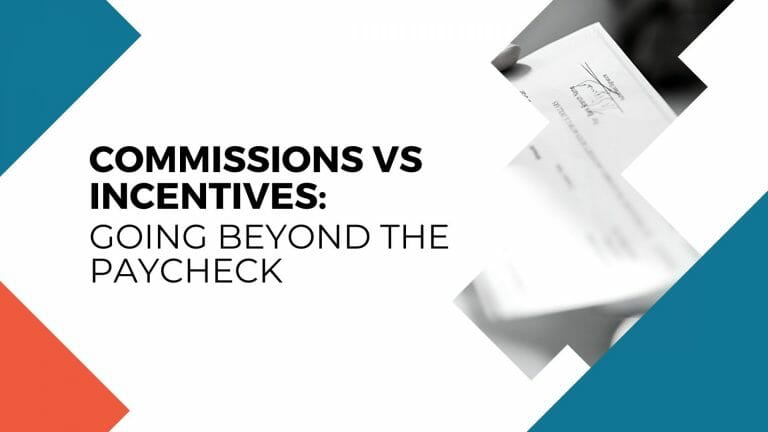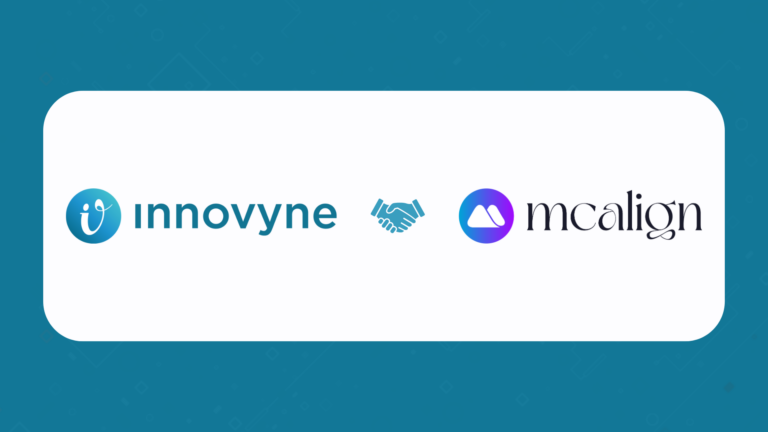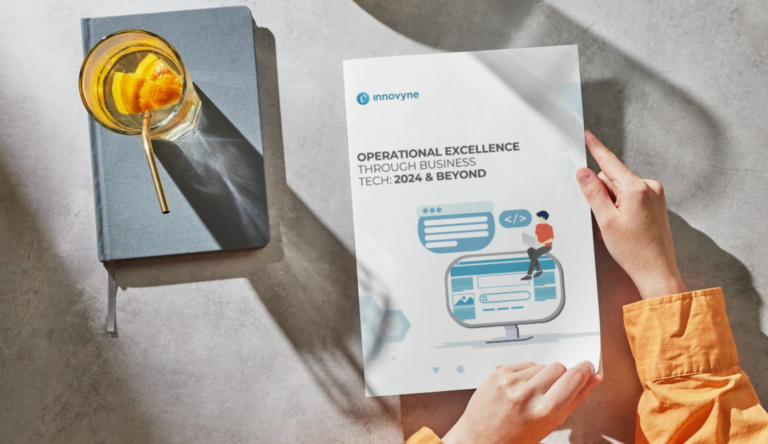When it comes to motivating and rewarding our salesforce, it’s easy to fall into the “one size fits all” trap of commissions and bonuses. But to truly incentivize stellar performance and boost job satisfaction, it’s worth considering the subtle nuances between different forms of rewards. After all, compensation is more than just a paycheck—it’s a tool to motivate, a statement of value, and a critical factor in employee retention. In this article, we’ll be delving into the differences between incentives and commissions.
Keep reading to gain insights into how these compensation techniques can be tailored to better align with your business objectives and the individual motivations of your sales team. To keep things pragmatic, we’ve also included interesting research and examples from leading businesses.
Let’s dive in and explore the world of compensation in a whole new light.
1. Commissions vs. Incentives: What’s the Difference?
At their core, both commissions and incentives are motivational tools aimed at encouraging better performance. However, their structure, timing, as well as the behaviors they target can differ vastly. Understanding these differences is critical to designing effective compensation plans. Let’s take a closer look:
Commissions | Incentives | |
Definition | Commissions are a type of compensation directly tied to the volume or value of sales a representative or a team makes. Usually, this is a pre-agreed percentage of the sales revenue. | Incentives, on the other hand, are rewards given to employees for reaching or exceeding specific targets. These goals may be related to sales but can also include other business objectives such as customer retention, product knowledge, team collaboration, and more. |
Timing | Commissions are typically calculated and paid out on a regular cycle, often monthly or quarterly, based on actual sales made. | Incentives can be structured in various ways and may not follow a set schedule. They can be one-off bonuses for achieving a specific target; seasonal, for hitting year-end or quarter-end goals; or even long-term, tied to the overall growth and profitability of the business. |
Behavior Targeted | Commissions primarily drive sales volume, motivating representatives to close as many deals as possible. | Incentives have a broader reach and can be tailored to encourage a variety of behaviors, including improving product knowledge, boosting customer satisfaction, fostering team collaboration, and more. They can be highly effective in promoting quality over quantity. |
Flexibility | Commissions are less flexible, given that they are typically a set percentage of sales. | Incentives offer more flexibility. Businesses can adjust the type, value, and targets of incentives based on strategic goals, budgetary constraints, or market conditions. |
Definition
Commissions
Commissions are a type of compensation directly tied to the volume or value of sales a representative or a team makes. Usually, this is a pre-agreed percentage of the sales revenue.
Incentives
Incentives, on the other hand, are rewards given to employees for reaching or exceeding specific targets. These goals may be related to sales but can also include other business objectives such as customer retention, product knowledge, team collaboration, and more.
Timing
Commissions
Commissions are typically calculated and paid out on a regular cycle, often monthly or quarterly, based on actual sales made.
Incentives
Incentives can be structured in various ways and may not follow a set schedule. They can be one-off bonuses for achieving a specific target; seasonal, for hitting year-end or quarter-end goals; or even long-term, tied to the overall growth and profitability of the business.
Behavior Targeted
Commissions
Commissions primarily drive sales volume, motivating representatives to close as many deals as possible.
Incentives
Incentives have a broader reach and can be tailored to encourage a variety of behaviors, including improving product knowledge, boosting customer satisfaction, fostering team collaboration, and more. They can be highly effective in promoting quality over quantity.
Flexibility
Commissions
Commissions are less flexible, given that they are typically a set percentage of sales.
Incentives
Incentives offer more flexibility. Businesses can adjust the type, value, and targets of incentives based on strategic goals, budgetary constraints, or market conditions
Each of these compensation models has its merits and can be effective to varying degrees depending on the sales culture, business objectives, and individual behaviors within your organization. The key to success lies in finding the right balance and alignment with your broader business strategy.
2. The Psychology of Reward: How Incentives and Commissions Impact Performance
Understanding how and why rewards motivate individuals can be a game-changer in business strategy. The impact of incentives and commissions on performance largely hinges on their psychological effects. Incentives and commissions interact with fundamental elements of human motivation— both extrinsic and intrinsic. Extrinsic motivation involves performing a task to earn a reward or avoid punishment. This is where commissions and incentives play a significant role. Conversely, intrinsic motivation comes from the satisfaction derived from the task itself, independent of any external rewards.
Commissions and Extrinsic Motivation
Commissions strongly drive extrinsic motivation. They create a direct correlation between the effort put into sales and the monetary reward received. This ‘pay-for-performance’ system can encourage sales representatives to put in more effort and close more deals.
However, the commission model may lead to an overemphasis on quantity over quality, as representatives strive to close as many deals as possible to increase their earnings. For businesses aiming to foster long-term customer relationships or promote complex products, this could be counterproductive.
Incentives and Diverse Motivations
By contrast, incentives offer a broader motivational spectrum. While they tap into extrinsic motivation by rewarding specific achievements, they also create opportunities for intrinsic motivation. For instance, an incentive tied to learning a new product inside-out or achieving high customer satisfaction scores can motivate reps to master their craft, fostering pride in their work.
Moreover, incentives can be designed to promote teamwork or healthy competition, creating a more engaged, collaborative, and ultimately, more effective salesforce. For instance, a group incentive for the team with the highest customer satisfaction rating can encourage collaboration and knowledge sharing among team members.
The Power of Variety
The research underscores the power of variety in rewards. A study published in the Journal of Personality and Social Psychology found that varying the type of rewards boosts motivation and performance, as it caters to different individual preferences and reduces monotony. Understanding the psychological impact of rewards paves the way to more effectively leverage incentives and commissions in motivating your salesforce and achieving business objectives.
3. Tailoring Your Approach: Finding the Right Balance Between Commissions and Incentives
Crafting a compensation plan that seamlessly integrates both commissions and incentives is crucial for fueling motivation and driving sales performance. However, achieving this delicate balance involves a good understanding of your team’s individual motivators, your business model, and the nature of your product or service.
Aligning With Business Goals and Sales Cycle
Firstly, the nature of your business and its sales cycle largely dictate the commission-incentive balance. If your business relies heavily on individual sales transactions, a higher emphasis on commissions might be suitable. However, businesses focusing on long-term customer relationships or subscription models may benefit more from incentives that promote customer satisfaction and retention.
Recognizing Individual Differences
Secondly, taking into account individual differences within your sales team is vital. People have diverse motivators and react differently to incentives and commissions. A one-size-fits-all approach may not drive the best outcomes for your business. Some people may be motivated by the direct correlation of effort to reward in a commission system, while others may appreciate the recognition and challenges that come with incentive rewards. Regular feedback sessions and performance reviews can provide insights into what motivates each team member and help adjust the balance between commissions and incentives accordingly.
Flexibility and Adaptability
Finally, maintaining a level of flexibility in your compensation model is key. Market conditions, business objectives, and team dynamics change over time. Your reward structure should adapt to these changes. Regular reviews and adjustments to the commission-incentive balance can ensure that your model stays relevant and effective.
An article by McKinsey & Company highlights the importance of adaptability in compensation models. According to their findings, organizations that regularly review and adapt their incentive programs often see improved sales performance. The art of tailoring your approach lies in finding the unique mix of commissions and incentives that resonates with your team while driving your business objectives effectively.
Download the whitepaper to continue reading…
- Industry Examples: Companies Getting It Right
- Addressing the Challenges: How to Overcome Hurdles in Implementing Incentives and Commissions
- The Future of Compensation: Innovations and Emerging Trends



